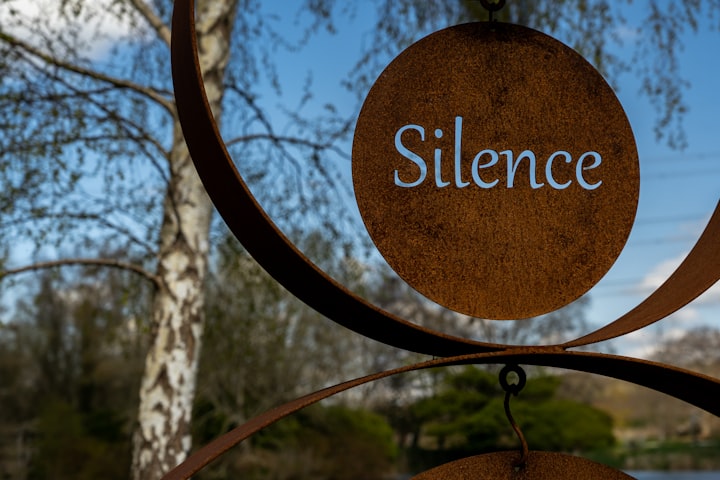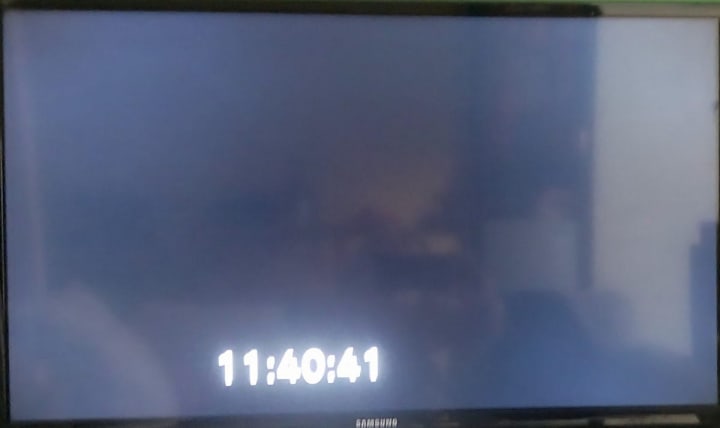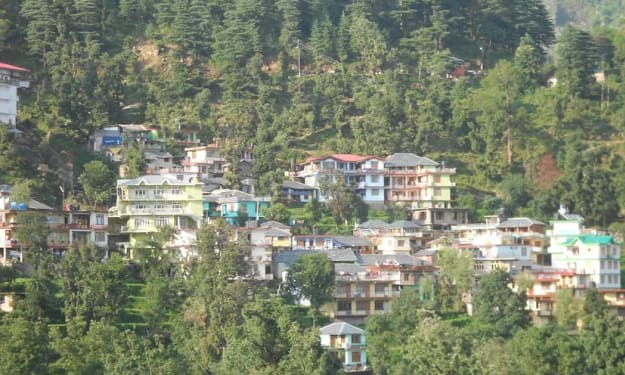What Might Transpire if the World Went Silent For Twenty-Four Hours?
Without any noise, travel, and activity

A day of silence
What might our world undergo if everything stopped for a twenty-four-hour period? If it went utterly silent? How would our lives be impacted?
That notion of the entire planet pushing the pause button for a day fascinates me. No wars. No noise. No traffic. No activity. No frenzy. No violence.
As preposterous as the idea might seem, it is precisely what happens once every year on Bali, the internationally renowned island of the largest archipelago in the world, Indonesia.
For twenty-four hours on Nyepi, silence prevails. Having had the enormous joy of being on the island for three Nyepi holidays, I absolutely adore it and always wish it lasted longer.
Nyepi
Nyepi (meaning "to keep quiet"), the Hindu New Year, was March 11. Unlike the rest of Indonesia, where the primary religion is Islam, Bali's is Hindu. The new year follows the new moon on the Hindu Saka calendar, also used in India and Nepal.
Referred to as the "Day of Silence," it is a profoundly spiritual day for devoted practitioners for reflection, prayer, and silence. Lasting from 6 a.m. to 6 a.m., the respite symbolizes enlightenment and rebirth. In the days leading up to it, the island participates in a series of rituals to cleanse itself of negativity.
Pause for twenty-four hours
Everyone on the island, including tourists, is expected to recognize the day of silence. Beaches are closed. Hotel check-ins and check-outs are not permitted. All businesses are shuttered. People are confined to their homes or hotels except for an emergency.
The airport closed at midnight the previous night. No lights or fire are allowed. All the street lights are shut off. ATMs are disabled the day before.
Because we are meant to maintain silence, loud music or noise is frowned upon. TV and Internet signals are supposedly blocked. My internet and wi-fi, however, were functional, but the television was not. Curious if the TV signal was blocked, I turned it on.
Similar to the New York City Times Square countdown clock before the famous ball-dropping on New Year's Eve, my television screen had a similar counter.
Silence for another 11 hours, 40 minutes, and 41 seconds.

Those unable to abide the silence vacate the island for Java or elsewhere for a vacation.
Some hotels offer "Nyepi packages" with pre-planned evening celebratory ceremonies and activities the night before. Hotel guests may use the pool and other facilities but must remain on the property.
Since people aren't supposed to cook, food is prepared or ordered the previous day. Indonesians eat differently than we do in Western cultures. Instead of families sitting down together for regular daily meals, food is cooked in the morning and afternoon or evening. Everyone noshes throughout the day whenever hungry.
Violations
Anyone found violating Nyepi rules will be punished. The patrolling Pecalang, traditional village security guards responsible for meting out penalties, are unpaid but may keep fines imposed for infractions. Punishment might be a fine or, in typical Balinese fashion, something like cleaning a temple.
Typically, an errant tourist or foreigner decides to go to the beach or to surf. All are no-no's.
One published story last year was about a foreign couple camping illegally who claimed they could not afford a hotel. Another group of non-Hindu villagers decided they didn't want to follow the rules and went to the beach.
A few years ago, a tourist insisted on going for a run despite being told it was against the rules. Disrespectful and rude to the Pecalang, a comical photo of him wrapped in chains was published as he was taken to the police station, where he was arrested. Still angry and uncooperative, his conduct was a sad comment about the failure of respecting local customs as a tourist. He was probably deported.
Island preparations in advance of Nyepi
Melasti
The Melasti celebration commences two to four days before Nyepi. A ritual dedicated to Saghyang Widhi Wasa, considered the creator of all things and ruler of heaven and earth, marks the beginning of the purification ceremonies.
Sacred objects are cleansed at the beach, and offerings are made. Sacred water may be collected from the sea. Beaches in some areas may be closed during this part of the ritual to ensure participants aren't interrupted.
Pengerupukan
The day before Nyepi is Pengerupukan. It follows the purification stage to further expel negative energies. Rituals performed by a priest include the sacrifice of an animal.
That evening, the festive ogoh-ogoh procession begins at dusk and continues into the night. The ogoh-ogoh statues symbolize the purification of the natural environment of any spiritual pollutants emitted from the activities of living beings, especially humans.
Gargantuan papier-mâché demonic-looking statues are paraded through village streets on large bamboo platforms carried by groups of boys or men, enthusiastically supported by drumming, lit torches, and merriment. Fireworks, rambunctious shouting and cheering, and loud music are employed to catch the attention of the evil spirits.
The ritual is also meant to appease the god of the underworld and destruction. Each village mounts its own parade.
Traditionally, at the night's end, the statues were burned in a ceremony to dispel evil spirits, believing it restored the balance among people, God, and nature. Now, however, in the interest of conservation, most are stored and repurposed for future years.
This article provides more details and includes photographs of the massive ogoh-ogoh.
https://vocal.media/wander/the-ogoh-ogoh-parade-to-cleanse-the-island-of-evil-spirits
Nyepi
The Day of Silence is the opposite of the high-energy, boisterous festivities. It is meant for rest, silence, and introspection.
It is based on four precepts of Catur Brata: (1) Amati Geni - no fire, electricity, or light; (2) Amati Karya - no work or physical activity except as dedicated to spiritual renewal and cleansing; (3) Amati Lelunganan - no travel; and (4) Amati Lelanguan - no revelry, entertainment or merrymaking. Some people follow additional rules of taking no food or drink, no talking, and no sleeping.
Ngembak Agni
Following Nyepi is Ngembak Agni, which is actually New Year's Day. Cooking and electricity are allowed again. People often meet to celebrate with family, and alas, many return to work and school classes resume.
History and reason for silence
The myth is that after the boisterous evening celebrations, the island goes into hiding on Nyepi to protect itself from the evil spirits returning. Silence is to maintain absolute tranquility and fool them into believing all inhabitants have deserted the island.
Many likely consume a fair amount of arak, the local liquor, the evening before. Hence, the next day of silence is probably also a welcome reprieve for nursing hangovers.
Various explanations exist for Nyepi's origins. One is that the tradition derives from King Kanishka I of India, who was famous for his tolerance of Hinduism and Buddhism.
Though the king never came to Indonesia, it's believed that Aji Saka, who introduced the Saka calendar, did and brought Hinduism to Indonesia in the fourteenth century.
My day
For someone who lives primarily in silence, I especially adore Nyepi. I didn't speak a word to anyone. I heard no voices. I used no volume on my phone or computer.
I didn't spend the day meditating. However, the silence and lack of interaction were the equivalent of a 24-hour meditation from the night before until falling asleep on Nyepi. After that period of complete silence, I wanted it to continue.
I heard a solitary sound: the soft whir of my floor fan. That was all. When I stepped onto my back patio, a lonely frog croaked intermittently, even more softly than the intensely vocal ones that periodically appeared during the rainy season. Exiting the front door, the only sound was the pump for the koi pond directly across from my front terrace.
The dogs didn't bark. The roosters didn't crow. There wasn't a single sound from the nearby streets. I heard no talking or children's voices.
After nightfall, the ebony black was both beautifully surreal and stunningly eerie. My first reaction to stepping outside was how one feels upon first walking into a blackened movie theatre. Until your pupils adjust, you feel blind. Once my eyes adjusted, I sat on the terrace in the pitch dark.
Because all the street lights had been disabled and no electricity was used inside homes, except for one light that wasn't visible outdoors, the only illumination was wispy gray clouds in the distance. I could barely make out only the shadows of trees on the property. Without turning on a flashlight, I dared not venture along the walk for fear of missing an obstacle in the path or it being slippery from the tropical dampness and misty drizzles.
The energetic aura was like the "calm before the storm," but alas, the only storm would be the resumption of everyday activities the following day at six a.m.
I took a one-hour nap. Otherwise, I wrote, read, and enjoyed the utter deafening silence. I slept with earplugs to extend the quietude until I was ready to awaken.
Conclusion
That silence made me reflect on what might result if the entire world engaged in simultaneous reflectiveness for one day. Anyone who meditates knows the myriad benefits of peace and calm the activity provides the meditator personally.
The Dalai Lama, spiritual leader of a Tibetan Buddhist lineage, purportedly has maintained that if all children throughout the world were taught to meditate at age five, we could live in a peaceful world.
What would the world be like if it shut down for an entire day? Might a global pause from violence and anger be a step in that direction, impacting humanity for the better?
Your time is valuable. I'm honored you chose to spend some of it here. Victoria 🙏
© Victoria Kjos. All Rights Reserved. 2024.
About the Creator
Victoria Kjos
I love thinking. I respect thinking. I respect thinkers. Writing, for me, is thinking on paper. I shall think here. My meanderings as a vagabond, seeker, and lifelong student. I'm deeply honored if you choose to read any of those thoughts.






Comments
Victoria Kjos is not accepting comments at the moment
Want to show your support? Send them a one-off tip.